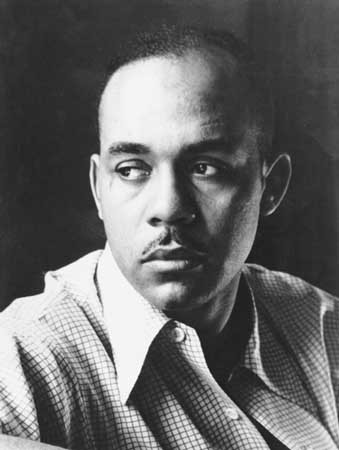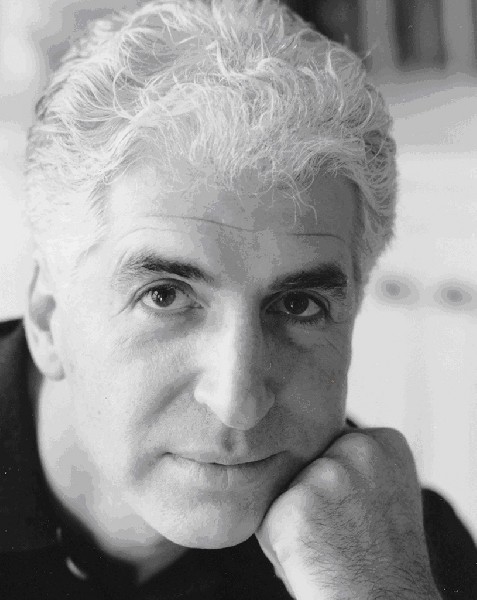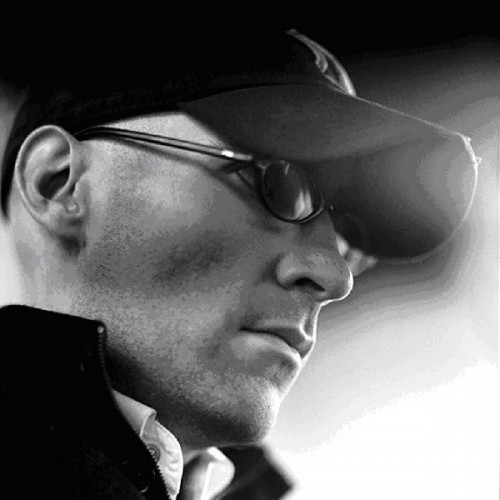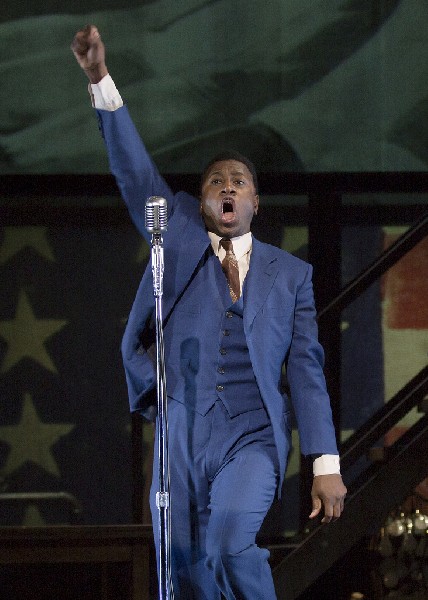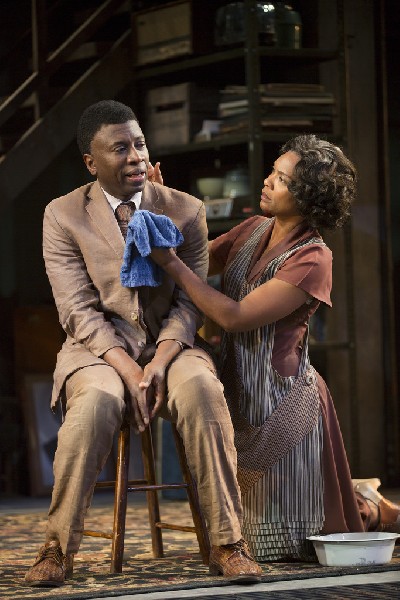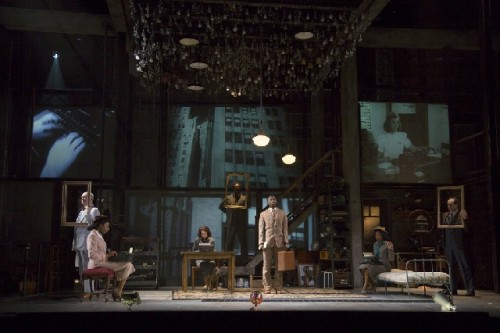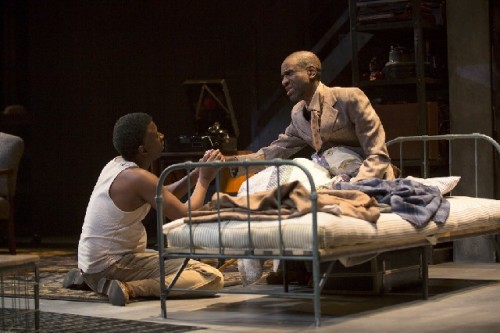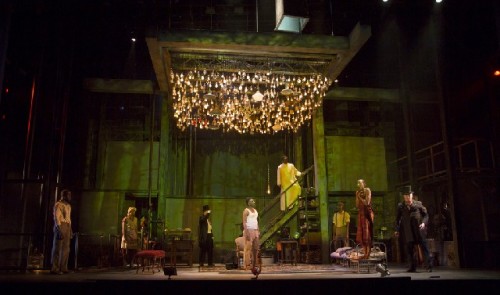Invisible Man Resonates At Huntington
Ralph Ellison's Brilliant Story of Racism and Dignity
By: Mark Favermann - Jan 09, 2013
Invisible Man
Based on the Novel by Ralph Ellison
Adapted by Oren Jacoby
Directed by Christopher McElroen
Creative Crew
Set Design Troy Hourie
Costume Design Kathleen Geldard
Lighting Design Mary Louise Geiger
Projection Design Alex Koch
Sound Design David Remedios
Fight Director Robb Hunter
Cast
McKinley Belcher III (Trueblood, Ras, Ensemble), Teagle F. Bougere (Invisible Man), Brian D. Coats (Grandfather, Burnside, Wheatstraw, Ensemble), Johnny Lee Davenport (Preacher, Bledsoe, Bockway, Ensemble), De'Lon Grant (Tod Clifton, Ralston, Ensemble), Edward James Hyland (Mr.Norton, Brother Hambro, Policeman, Ensemble), Joy Jones (Slave Girl, Mattie-Lou, Old Woman, Ensemble), Jeremiah Kissel (MC, Emerson Jr., Brother Jack, Ensemble), Deidra LaWan Starnes (Singer, Kate and Mary Rambo), Julia Watt (Stripper, Emma, Woman in Red and Ensemble).
The play runs 2 hours and 50 minutes with 2 intermissions.
Huntington Theatre Company
At the BU Theatre
264 Huntington Avenue
Boston, MA 02115
January 4, 2013 to February 3, 2012
www.huntingtontheatre.org/
It can be categorized as painful recognition of strong memories of historic wrongs.
Ralph Ellison's Invisible Man is one of the books that we either read in our college sociology courses or contemporary literature classes. It is hard to remember because it is both thoughtful sociology and great literature. Due to its painful descriptions, it was not an easy read. The current production of Invisible Man at the Huntington Theatre Company is an emotionally enthralling dramatic experience.
This adaptation of Ellison's book by Oren Jacoby at times is both piognant and poetic. It is a play about identity and civil as well as human rights. Instead of being a story of redemption, it is more a discourse in recognition, both societal and self. This is not easy to digest lite theatre fare, but heavy food for thought and reflection.
Invisible Man is the story of a young, rather niave college-educated black man's journey of survival. Being manipulated and let down by most of those he encounters, he struggles just to find himself and make ends meet while attempting to succeed in a racially divided society. This is a society that refuses to recognize or acknowledge him as a unique human being.
Merging narrative with dramatic action, the play is told in the first-person by the protagonist. It traces the nameless narrator's physical and psychological journey from youthful blind ignorance to enlightened, somewhat cynical awareness. As Ellison wrote, he moves from "purpose to passion to perception." This is done through a series of flashbacks, dreams and memories.
Set in the U.S. during the pre-Civil Rights era when segregation laws barred Black Americans from sharing the basic human rights of their white neighbors, the hero's journey starts in the South (South Carolina), but most of the action takes place in the North (New York).
The acting and staging of the play are both superb. All of the performances are physically expressive and emotionally well-developed. Direction by Christopher McElroen is seamlessly choreographed, punctuated by thoughtful gesture.
The acting is this production is uniformly wonderful. Starting with the narrator/protagonist role played with an empathetic believableness by the talented Teagle F. Bougere, each character was clearly portrayed. Mr. Bougere's performance is a dramatically inspired statement.
He walks a razor's edge between being the narrator and performing as the protagonist. His outstandingly layered characterization instills the journey taken to find personal enlightment in a difficult societal period with an insightful interpretation of a youth becoming a man. By himself, Bougere's performance is worth the price of admission.
The supporting actors all played multiple roles which are distinctively nuanced. Notable were Johnny Lee Davenport as the booming Preacher, the mean-spirited Dr. Bledsoe and the angry, resigned Brockway and Brian D. Coats as the ghostly Grandfather, the street person Burnside and Peter Wheatstraw.
Joy Jones played a sympathetic Slave Girl, Mattie-Lou and Old Woman with elegance and believability. Deidra LaWan Starnes played the Singer, Kate and the good Mary Rambo with beauty and strength. In each of their several roles, Julia Watt, De'Lon Grant, Jeremiah Kissel, Edward James Hyland and McKinley Belcher III all were impactful and expressed emotional facility.
Lessening the impact of the drama is the play's wordiness of the narrator/protagonist. The narration sometimes gets in the way of the acting and vice-versa. This is a function of Oren Jacoby's heavy-handedness rather than the actor's ability or Ellison's genius.
Another soft point is the timeline. The audience is not made aware of the length of time of the protagonist's journey. Is it a few days, a few months or even a few years?
The set design by Troy Hourie, along with the lighting design by Mary Louise Geiger, and projection design by Alex Koch work in wonderful visual harmony to create environments for the narrative. This superb stagecraft frames and enlarges the production.
As a meditation on race and class in America, Ellison's Invisible Man is a brilliant part of our historic and cultural heritage. This adaptation focuses on the personal pain of institutionally condoned racial descrimination and the cultural as well personal confusion that this negative aspect of our history caused.
This is a strong ensemble play that dramatically underscores how Invisible Man is an important American cultural icon. The production involves a tremendous set of brilliant acting performances that sensitively describe the historic pain and suffering of America's Black citizens. The legacy of this experience is the cruel and unfair heritage of a major segment of our population.
Invisible Man is an energetic adaption of one of our greatest American novels. Not only about racism and dignity, it is also about what being an individual in society means. It is a powerful cultural experience that should be shared and discussed. Invisible Man is theatre as conscience.

